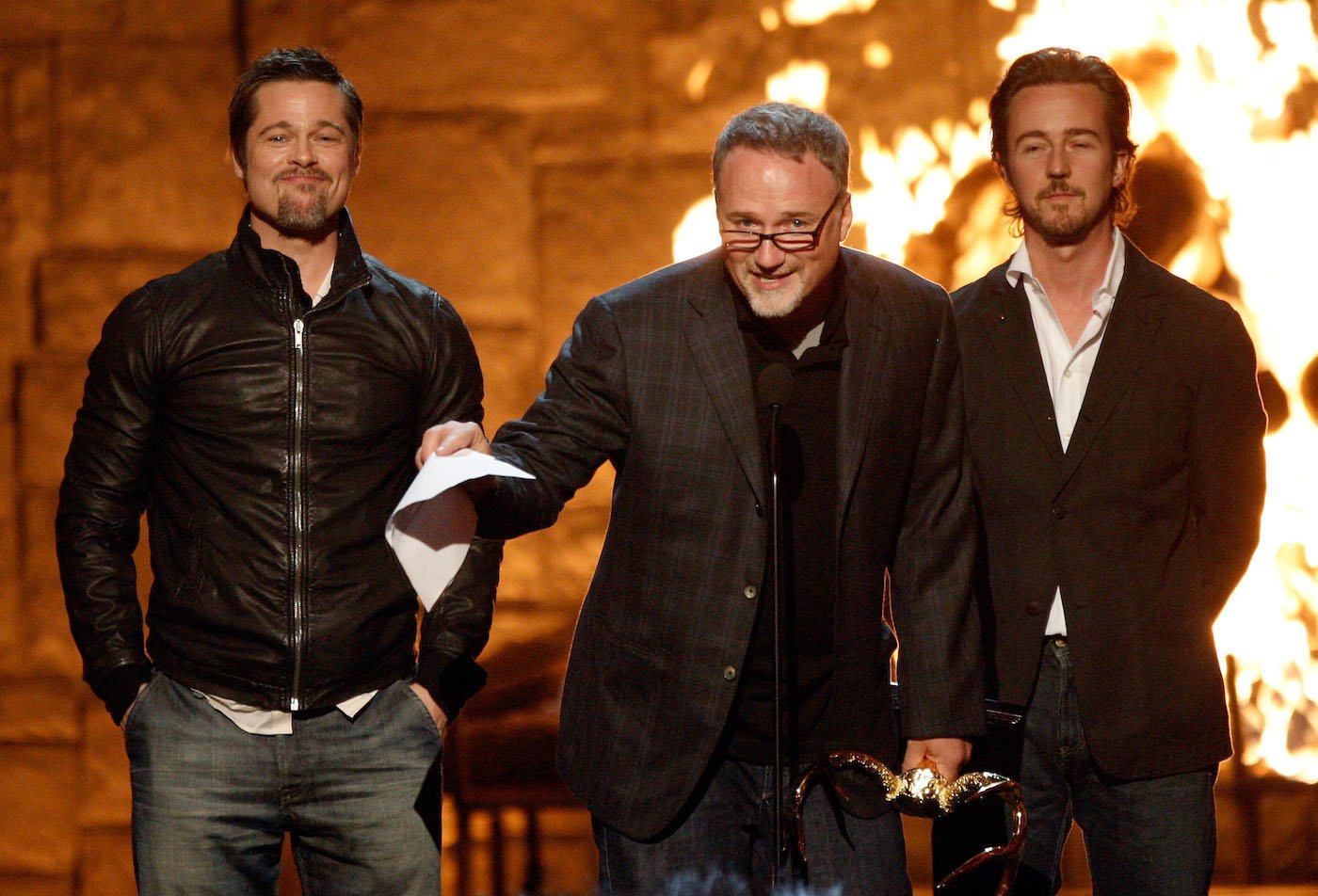‘Fight Club’ Director David Fincher Was Furious That the Film Was Advertised During UFC and WWE Fights
David Fincher’s 1999 movie Fight Club comes to mind immediately when you hear, “The first rule of Fight Club: You don’t talk about Fight Club.” The quote has gone well beyond its years, into generations that didn’t have the pleasure of experiencing it at its premiere. And it couldn’t have been done without the talented Brad Pitt and Edward Norton.
More than 20 years later, the film still speaks to audiences despite the fact it had to overcome challenges like Fox’s UFC and WWE advertising approach. Oh, and Rosie O’Donnell tried to take Fight Club down before it had the chance to become the cult classic it is today.
Fincher wanted the advertising for ‘Fight Club’ to represent the film’s theme

Fight Club follows an unnamed narrator and white-collar salesman (Norton) who’s bored with his job, having trouble sleeping, and tired of the life he’s living. When he meets soap salesman Tyler Durden (Pitt), everything changes. They create an underground club where men can fight it out and bring something more to their lives.
All seems well enough for the pair until Marla Singer crashes the party and comes between the two guys’ friendship/partnership. Oh, and when things turn destructive and Tyler wants to tear down the entire ‘American Dream’ — everything goes downhill.
When all was said and done, the film caught studio executives off-guard, and they didn’t know where to start marketing. Fincher knew immediately it should be a highly unique campaign that would mirror the film’s anti-commercialism theme.
For this reason, he approached the leading advertising firm Wieden & Kennedy to develop a way to promote the film that was different from the usual methods. They came up with the iconic image of a bar of pink soap with the all-caps words “FIGHT CLUB” carved into it — the soap that, even today, still makes its way into promotional products.
20th Century Fox overruled Fincher
When 20th Century Fox execs got a whiff of Fincher’s new marketing idea, the cat was out of the bag, and they were not impressed. In fact, Fox was perplexed by this and went on to overrule him. Instead, the studio launched a campaign built around Brad Pitt and ignored many of the important elements of the film’s narrative.
Fincher was even more furious when he noticed that ads for the film were running during WWE and UFC programming, especially because the fighting played only a minor role in Fight Club.
According to IMDb, “The campaign was highly criticized as giving the impression that the film was basically just about men beating each other up, completely ignoring the comic and satiric elements of the narrative, and for marketing the film to the wrong audience. David Fincher was particularly incensed when he saw ads for the film during WWE and UFC programming.”
Rosie O’Donnell trashed ‘Fight Club’ on its release date and gave away the film’s surprise ending
The Friday the film came out theatrically in the United States, Rosie O’Donnell appeared on her TV show and revealed she had seen Fight Club earlier in the week and had been unable to sleep since then. She then gave away the film’s plot twist ending and urged her viewers to avoid the movie at all costs.
In a break-down from Film School Rejects on the 30 things its reviewers learned from the Fight Club DVD commentary, they recall the time when Fincher asked Norton and Pitt what they thought of O’Donnell’s strong dislike of the film.
“It’s OK she hated it … it struck some nerve for her whether she wanted to look at that or not,” Pitt responded. “But the deal was she gave away the ending on national television. It’s just unforgivable.”


